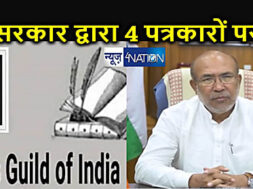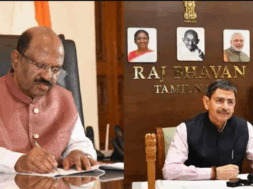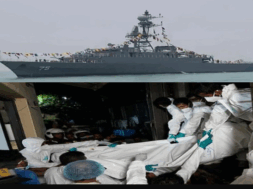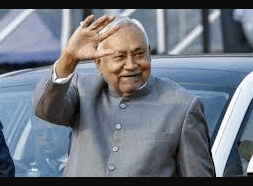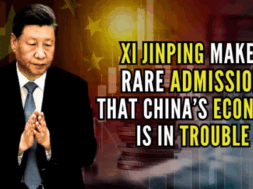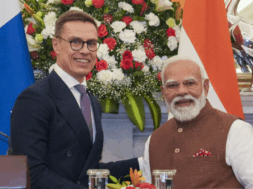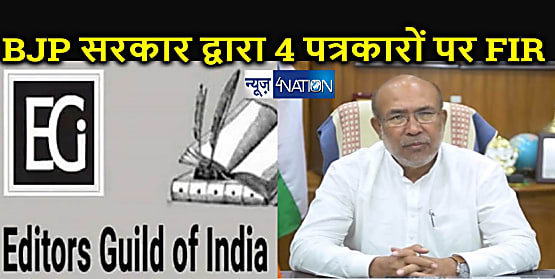
Manas Dasgupta
NEW DELHI, Sept 6: Accepting a plea for urgent hearing, the Supreme Court on Wednesday granted an interim protection from arrest by the Manipur police till September 11 of the Editors’ Guild of India president and its three rapporteurs for their alleged “biased” ground report of the situation in the strife-torn state.
A three-judge Bench headed by Chief Justice of India D.Y. Chandrachud listed the case for a detailed hearing on September 11 and directed the Manipur Police not to take any coercive actions against them in the interregnum.
“Notice. Keep it on Monday… Till the next date of listing, no coercive action will be taken in connection with the FIRs,” Chief Justice Chandrachud dictated in the short interim order.
Senior advocate Shyam Divan, who made an urgent oral mentioning before the Chief Justice’s Bench on behalf of the EGI, said they knew that at least two FIRs have been filed by the Manipur police against the EGI president and three other senior journalists after the report was released on September 2.
The FIRs have accused EGI president Seema Mustafa, and three rapporteurs Sanjay Kapoor, Seema Guha and Bharat Bhushan of offences under several provisions of the Indian Penal Code, including promoting enmity between different groups. The complaints, based on which the FIRs were registered, accused the EGI report of “incorrect and false statements.”
Divan said the report was prepared by the fact-finding team after extensive travelling and interviews with victims and eyewitnesses between August 7 and 10. An error which crept into the report was corrected promptly, the senior lawyer said. He said the EGI had serious apprehensions about the right to free speech and personal liberty of the journalists after hearing Manipur Chief Minister Biren Singh’s statements in a press conference following the release of the report.
“The Chief Minister said in a press conference he had personally held that the EGI was stoking passions and making provocative statements… Consider the particular dimensions now with the Chief Minister saying this…” Divan submitted. Advocate Kanu Agrawal, for Manipur, requested the Bench to schedule the case on Monday, or, in the alternative, direct the petitioners to approach the Manipur High Court for relief strictly on the merits of the case.
Though the Chief Justice initially toyed with the idea of giving a four-week protection to the EGI journalists, the court finally settled on September 11.
Earlier in the day, the Chief Justice had asked why the journalists had directly moved the Supreme Court in a writ petition without first approaching the High Court. “You came without going to the High Court,” Chief Justice Chandrachud had asked Divan in the morning.
But after a brief discussion with Justices J.B. Pardiwala and Manoj Misra, Chief Justice Chandrachud had told Divan to get the case papers ready. The court finally took up the petition at the end of the board just before rising for the day.
The report spoke about the deep ethnic divide in the media during the violence. “During the ethnic violence, journalists of Manipur wrote one-sided reports. In normal circumstances, they would be cross-checked and monitored by their editors or chiefs of bureaus from the local administration, police and security forces. However, this was not possible during the conflict,” the report had said.
The Supreme Court also asked the Manipur government to act against illegal arms irrespective of the affiliations of those stocking or using them and sought a status report on its August 7 direction to take stock of the arms looted or missing and to formulate a plan for recovering them.
Chandrachud who was presiding over a three-judge bench, took up petitions filed in the wake of the ethnic clashes that broke out in the state. Chandrachud told counsels appearing for various tribes who accused each other of looting weapons and using them that the court was “not concerned with who looted.”
“We are looking at it as we have said repeatedly that we are not concerned with the source of the wrongdoing. We are concerned with the fact that there has to be accountability for wrongdoing. We are not concerned with the source of human suffering. Irrespective of the source of the human suffering, everybody has to be dealt with on a uniform basis,” CJI Chandrachud said.
“Even for disarmament, we are not concerned with if there are illegal arms on one side or the other. We are dealing with this objectively. The state has to take action irrespective of the source where the illegal arms are situated,” the CJI said, adding that the “investigation of crime, dealing with various aspects of human suffering, recovery of arms providing compensation, these have to take place across the board irrespective of who the person genuinely in need is.”
The court in its August 7 judgment had directed the state to “take stock of the number of arms missing or looted from the armouries of the state and of these, the number of arms which have been recovered. Formulate and implement a plan to recover any missing arms.”
Meanwhile, a massive group of protesters started marching towards barricades placed by the security forces between two tensed districts in Manipur, forcing the security forces to fire tear gas and rubber bullets. Several were injured and were taken to hospital.
The protesters came out defying curfew in the Meitei-majority valley region of Manipur, following a call by the Coordination Committee (COCOMI), the umbrella body of Meitei civil society groups.
The COCOMI said they will march till the Chin-Kuki-majority Churachanpur, despite the government’s appeal not to do so as it may worsen the Manipur crisis. Security has been tightened in Churachandpur, 35 km from the Meitei-majority Bishnupur district. The barricades have been placed between these two districts in an area that the security forces call a temporary “buffer zone.”
Locals said they are unable to go home in Torbung due to the barricades at Phougakchao Ikhai. They said they fled from Torbung when ethnic violence broke out on May 3. The COCOMI said they had requested the government to remove the barricades at Phougakchao Ikhai by August 30.
Officials said curfew was enforced in all the five valley districts – Bishnupur, Kakching, Thoubal, Imphal West, and Imphal East. A large number of security forces was also deployed in different districts as a preventive measure. For the past few weeks, curfew had been eased in the five valley districts from 5 am to 6 pm every day.
“We will stop any kind of disturbance to the law and order situation in the areas between the two districts. Adequate forces have been deployed including the district police, CRPF, BSF, ITBP, RAF, army and Assam Rifles,” Churachandpur Superintendent of Police Kartik Malladi said.
“We are coordinating with the neighbouring districts of Kakching and Bishnupur and also the forces deployed on the other side. We regularly meet so that any kind of mobilisation either from Churachandpur or Bishnupur would be taken care of and the masses will not come close in the area between the two districts,” Malladi said.
